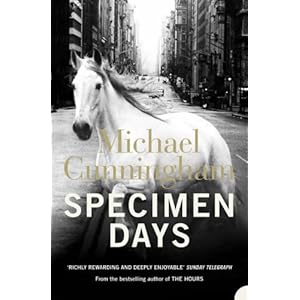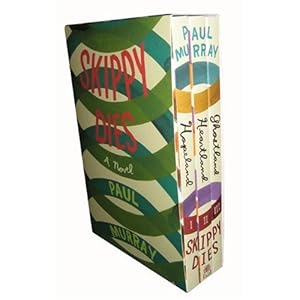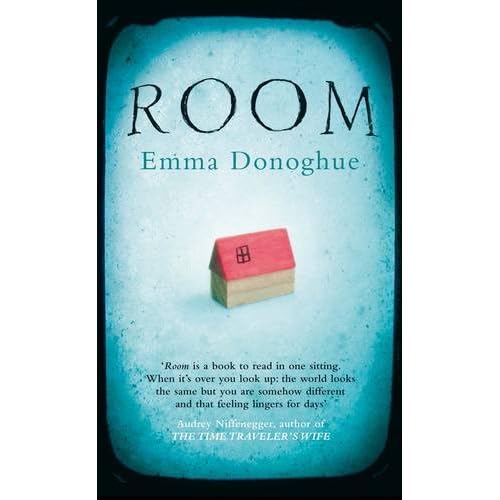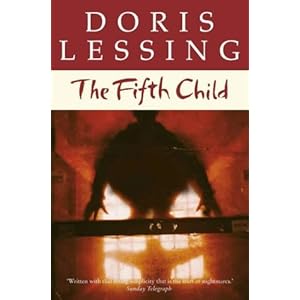 This is the fifth book by Murakami that I have read, and excluding What I Talk About When I Talk About Running, I have to say it's the most subtle. The magical realism and bizarreness that I expect from Murakami's writing is missing, which is almost disappointing. However, this book is strangely reminiscent of Norwegian Wood, in that the title is inspired by a song (Nat King Cole's South of the Border), and that the middle-aged protagonist still thinks of his first love.
Hajime, thirty-seven years old when this novel starts, is the narrator. An only child in the 1950s, when most families had at least two children, Hajime is often considered to be the stereotypical only child: spoilt and selfish. While for the most part, he does come across as a decent introspective narrator, some of his actions and thoughts lead us to believe he does actually fit the "only child" bill.
This is the fifth book by Murakami that I have read, and excluding What I Talk About When I Talk About Running, I have to say it's the most subtle. The magical realism and bizarreness that I expect from Murakami's writing is missing, which is almost disappointing. However, this book is strangely reminiscent of Norwegian Wood, in that the title is inspired by a song (Nat King Cole's South of the Border), and that the middle-aged protagonist still thinks of his first love.
Hajime, thirty-seven years old when this novel starts, is the narrator. An only child in the 1950s, when most families had at least two children, Hajime is often considered to be the stereotypical only child: spoilt and selfish. While for the most part, he does come across as a decent introspective narrator, some of his actions and thoughts lead us to believe he does actually fit the "only child" bill.
Hajime and Shimamoto, a twelve year old girl left lame by Polio, meet when the two are twelve years old, and instantly strike up a friendship. Shimamoto is an only child as well, and the two children feel perfectly at ease with one another, until the inevitable happens: Hajime moves to another town at the end of the school year, and the two lose touch.
Hajime has his first girlfriend, and the first girl he sleeps with is her cousin, hurting his girlfriend at the time beyond repair. He attempts justifying it, saying
From the first time I saw this girl, I knew I wanted to sleep with her. More accurately, I knew I had to sleep with her. And instinctively, I knew she felt the same way. When I was with, my body, as the phrase goes, shook all over. [...] The magnetism was that strong. I couldn't let this girl walk away. If I did, I would regret it for the rest of my life.
He still stumbles through life, till he reaches this point: happily married to a placid loving woman, Yukiko, with kids, running two successful jazz bars. He is content, for the most part, but something is missing. Cue, Shimamoto enters his bar one day, and the two childhood friends are reunited, much to their joy. The attraction is mutual, and he is ready to give up his content happy life to spend time with her. However, her life remains a dark mystery throughout the book - she doesn't talk about her past, or the troubles she's undergone. She comes and goes, sometimes disappears for months unending, with no explanations, but that's enough to make Hajime's life tumultuous as he obsesses over her, how he can't live without her and how he's ready to sacrifice everything for her.
The title itself is indicative of that, with the "West Of The Sun" referring to a madness that affects Siberian farmers which causes them to forget about the bare necessities of life, but just keep walking towards the land west of the sun, till they drop dead out of fatigue, hunger and thirst. It's this self-destructive streak that made him endearing, and almost stopped me from judging him for his actions, and his susceptibility to infidelity. Also, it did make me ask the question: is this selfishness and obstinacy a result of him being an only child - a point Murakami's emphasises abundantly in this book? He does ponder the repercussions of his actions, but at the end of the day, he's predominantly thinking of himself.
Infidelity is never forgivable as per my moral compass. And then, we see the lives of women destroyed - of happy women transforming into unemotional stones, of women full of life feeling compelled to kill themselves, of married women willing to accept infidelity - and that makes me wonder, why on earth is it that women are normally shown to be that weak and fragile, so much so that men can break them so easily?
The one thing that did really annoy me about this book was that as a reader, I have no idea as to what Shimamoto's story is! What is she hiding and why is she being so secretive? So coy? So precocious?
I enjoyed the flow of this book, specially in the second half, where Murakami describes the imagery and the emotions oh-so-poetically.
Every once in a while, as if remembering its duty, the sun showed its face through a break in the clouds. All we could hear were the screeches of the crows and the rush of water. Someday, somewhere, I will see this scene, I felt. The opposite of deja vu - not the feeling that I had already seen what was around me, but the premonition that I would some day. This premonition reached out its long hand and grabbed my mind tight. I could see myself in its grip. There at its fingertips was me. Me in the future, grown old. Of course, I couldn't see what I looked like.
but I did crave some of the kooky outlandish writing that I've come to know and love Murakami for.
Guess The Wind Up Bird Chronicle is the next Murakami on my list. Will it be bizarre enough?
 It feels like ages since I've read a young-adult book, so when I read a
It feels like ages since I've read a young-adult book, so when I read a  After reading
After reading  I absolutely adored Cunningham's
I absolutely adored Cunningham's  A Gen-X story, The Slap is set in Melbourne with a Greek family at the pivot point. Hector, the protagonist, is married to Aisha, an Indian girl. The two of them are the envy of their friends, set in their perfect lives, with two children. Of course, there is no such thing as perfection, once you peel away the layers, but on the face of it, they are pretty much "perfect." Aisha is vet; Hector is a bureaucrat.
The two of them host a barbecue one afternoon, inviting their friends and family as well as the children. Disagreements between the kids (Spiderman on TV?), unease with the in-laws, and tensions building between some friends sums up the afternoon, although again, on the face of it, everyone seems to be having a good time. But then, the facade falls when Harry, Hector's cousin, slaps a brattish four-year old across the face, and that's the tipping point.
A Gen-X story, The Slap is set in Melbourne with a Greek family at the pivot point. Hector, the protagonist, is married to Aisha, an Indian girl. The two of them are the envy of their friends, set in their perfect lives, with two children. Of course, there is no such thing as perfection, once you peel away the layers, but on the face of it, they are pretty much "perfect." Aisha is vet; Hector is a bureaucrat.
The two of them host a barbecue one afternoon, inviting their friends and family as well as the children. Disagreements between the kids (Spiderman on TV?), unease with the in-laws, and tensions building between some friends sums up the afternoon, although again, on the face of it, everyone seems to be having a good time. But then, the facade falls when Harry, Hector's cousin, slaps a brattish four-year old across the face, and that's the tipping point. Paul Murray's second book, Skippy Dies, has been long listed for the
Paul Murray's second book, Skippy Dies, has been long listed for the  This is probably one of the most gripping books I've read this year. I almost feel guilty that I didn't take Audrey Niffenegger's advice, scrolled across the book cover:
This is probably one of the most gripping books I've read this year. I almost feel guilty that I didn't take Audrey Niffenegger's advice, scrolled across the book cover:
 Melancholic - that's the first word that came to my mind when I finished this book. I'm guessing that's how Helen, the protagonist, felt for a major part of her adult life. Her husband, Cal, had been on the Ocean Ranger that sunk in 1982, off the coast of Newfoundland - there were no survivors.
Fast-forward to 2008, which is when this book starts: Helen, now a middle-aged woman, is battling loneliness and misery, as she tries to find some kind of solace in looking after the grandchildren and sewing beautiful wedding and prom dresses as a career. She's tried her hand at online dating, after being persuaded by the children; she's tried yoga; working in a corporation and all in all, it just sounds like she's tried a myriad of things to get over the grief - but to no avail. Does one ever actually get over losing a loved one?
Melancholic - that's the first word that came to my mind when I finished this book. I'm guessing that's how Helen, the protagonist, felt for a major part of her adult life. Her husband, Cal, had been on the Ocean Ranger that sunk in 1982, off the coast of Newfoundland - there were no survivors.
Fast-forward to 2008, which is when this book starts: Helen, now a middle-aged woman, is battling loneliness and misery, as she tries to find some kind of solace in looking after the grandchildren and sewing beautiful wedding and prom dresses as a career. She's tried her hand at online dating, after being persuaded by the children; she's tried yoga; working in a corporation and all in all, it just sounds like she's tried a myriad of things to get over the grief - but to no avail. Does one ever actually get over losing a loved one? About five years back, with the launch of the iPod Shuffle, Apple declared "random is the new order" to the world, as "life is random" so we should "give chance a chance."
What does any of this have to do with Black Swan Green? Well, nothing, really! However, it does have a lot to do with the way I've approached the works of David Mitchell - Unlike some book bloggers (e.g.
About five years back, with the launch of the iPod Shuffle, Apple declared "random is the new order" to the world, as "life is random" so we should "give chance a chance."
What does any of this have to do with Black Swan Green? Well, nothing, really! However, it does have a lot to do with the way I've approached the works of David Mitchell - Unlike some book bloggers (e.g.  The Brontës Went to Woolworths is one of those utterly bizarre books, with quirky characters and a story which makes the mind boggle. The thin line between fact and fiction is erased by the Carne sisters - the protagonists of this book - as they let their imaginations run away with them, and create a wondrous warm world of friendship, happiness and make-believe. A dog who used to be Pope, a doll who used to live in Paris and friends in high places, including Judge Toddington ("Toddy").
You also have their mother, who indulges them and the prudish governess, Miss Martin, who judges them, as she can't quite fathom what's going on inside the bubble the family has created for themselves, probably to cope with grief and sadness after their father's unfortunate demise. To be fair, one can't really blame Miss Martin for being confused about what's going on in this 1930s household - I was utterly baffled by what was going on for the first fifty odd pages, and I kind-of had an inkling of a clue. However, once I figured out the line that the Carnes had erased, things suddenly became much clearer...
The Brontës Went to Woolworths is one of those utterly bizarre books, with quirky characters and a story which makes the mind boggle. The thin line between fact and fiction is erased by the Carne sisters - the protagonists of this book - as they let their imaginations run away with them, and create a wondrous warm world of friendship, happiness and make-believe. A dog who used to be Pope, a doll who used to live in Paris and friends in high places, including Judge Toddington ("Toddy").
You also have their mother, who indulges them and the prudish governess, Miss Martin, who judges them, as she can't quite fathom what's going on inside the bubble the family has created for themselves, probably to cope with grief and sadness after their father's unfortunate demise. To be fair, one can't really blame Miss Martin for being confused about what's going on in this 1930s household - I was utterly baffled by what was going on for the first fifty odd pages, and I kind-of had an inkling of a clue. However, once I figured out the line that the Carnes had erased, things suddenly became much clearer... By virtue of Doris Lessing being a Nobel Laureate, her books have always intimidated me. The size of the one book I've heard about the most, The Golden Notebook, hasn't really helped. However, when I stumbled upon The Fifth Child at the library, I felt as though I had to try reading at least one of her books. I've read
By virtue of Doris Lessing being a Nobel Laureate, her books have always intimidated me. The size of the one book I've heard about the most, The Golden Notebook, hasn't really helped. However, when I stumbled upon The Fifth Child at the library, I felt as though I had to try reading at least one of her books. I've read  I have an absolutely ancient copy of this book lying around, and it's actually bizarre that I've not read the book yet - it's just 114 pages long! Published in 1974, the book cost just 30p at the time (US$0.45)! The book costs £7.99 now... let's keep that musing for another day!
The Old Man and the Sea is an extremely 'concise' book, for the lack of a better word. The plot is uncomplicated, with minimal dialogue. It's literally about an old man and the sea, as the old man (Santiago) tries to change his luck, after going eighty-four days without catching a fish.
I have an absolutely ancient copy of this book lying around, and it's actually bizarre that I've not read the book yet - it's just 114 pages long! Published in 1974, the book cost just 30p at the time (US$0.45)! The book costs £7.99 now... let's keep that musing for another day!
The Old Man and the Sea is an extremely 'concise' book, for the lack of a better word. The plot is uncomplicated, with minimal dialogue. It's literally about an old man and the sea, as the old man (Santiago) tries to change his luck, after going eighty-four days without catching a fish.